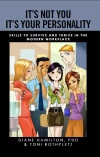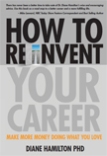Understanding Personality Improves Communication and Productivity

In my recent NACACS presentation, I received a lot of questions about the differences in personalities in the workplace. Some of the participants had gone through Myers-Briggs, DiSC, StrengthsFinder, or some other type of assessment. However, many of them had not had any training regarding personality preferences. There are a variety of personality assessments that can help people learn how to get along at work. Therefore, it may be challenging to determine which assessment to use. I believe that there are some important things to learn from many of these tools. Toni Rothpletz and I wrote It’s Not You It’s Your Personality to summarize the important aspects of each of the major personality assessments and help employees thrive at work.
Many guests on my Take the Lead Radio Show are experts in different aspects of helping employers improve communication. That is really what these assessments are meant to improve. We need to communicate more effectively; we can do that through improved understanding of each other’s preferences. Whether it is the introvert learning how to get a word in edgewise with an extravert, or a dominant personality learning to listen better, it is all about communicating effectively. In the 1970s, two separate research teams came up with what we now call The Big Five Factors of Personality, based on research that came out in the early 1930s. Societies have endeavored to determine the best ways to communicate. It is a challenge that will continue because there are so many unique personality traits.
What may help is to develop empathy, which is a big component of emotional intelligence. I studied the importance of empathy on interpersonal relationships as part of my doctoral dissertation. Empathy, mood self-regulation, self-presentation, along with practical intelligence was a big factor related to work success. Employees who demonstrate empathy understand other’s feelings when making decisions that might impact them. Companies that focus on developing these important skills can have more productive and engaged employees. It behooves employers to proactively encourage effective communication, due to the $550 billion a year productivity loss due to unhappy employees. They can begin by helping employees understand personality preferences. People are more accepting of personalities that are different from their own if they understand why people display certain behaviors. Once they understand different personality traits, they can develop empathy and other key emotional intelligence traits to help them be more successful, cooperative, and productive workers.
Related Articles:
- Soft Skills: Critical to Employee Success
- First IQ, Then EQ: Leaders Must Now Have CQ
- What Leaders Need to Know About Engagement
- Managing Millennials Requires Understanding Their Values
- The Cost of Engagement and How to Improve It
- How to Develop Soft Skills Not Learned at Work or School
- Forbes: Generational Issues in the Workplace: Millennials vs. Boomers
- Determining Personality Type for Team-Building
- One Key Word Impacts Intelligence, Engagement, Sales, Soft Skills, Gamification, and Millennials





















Reply